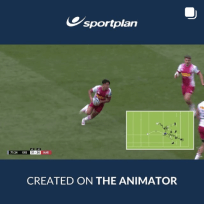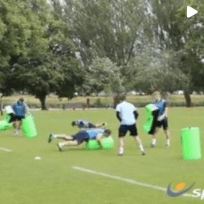TRANSFORM YOUR TEAM'S SEASON WITH PROFESSIONALLY PLANNED SESSIONS
Use our expert plans or build your own using our library of over 700+ drills, and easy-to-use tools.
JOIN NOWHi Marius,
Playing a smaller pack against a bigger opposition, particularly at scrum time, requires strategic thinking, technique, and teamwork. Here are some tactics commonly employed:
Technique over size:
Speed and agility:
Target weaknesses:
Mobility in the loose:
Smart tactics:
Set piece variation:
Fitness and conditioning:
Adaptation:
I hope this helps,
Cam
Also, replace any salads with cake, apparently salads donât win scrums?

in more ways than one




From France's collision dominance to England's folding defence - what grassroots coaches can learn from the 2026 Six Nations.

The removal of "not-straight" on uncontested lineouts transforms your set-piece options. Here's how to exploit the new rule.

2026 brings revolutionary changes to international rugby: a brand new global tournament, historic tours, and law changes that will reshape the game. Here's everything coaches need to know.
Use our expert plans or build your own using our library of over 700+ drills, and easy-to-use tools.
JOIN NOW